By: Izumi Hasegawa May 17, 2016
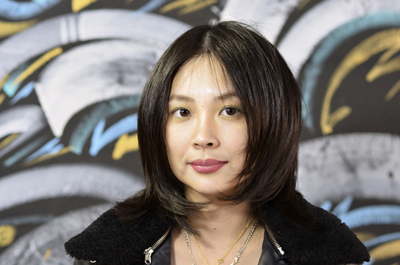
When a film ends, a series of names with job titles scroll across the screen. That is usually the cue for most people to leave the theater. What many forget is that those names are at the very foundation of the film, the individuals who not only make the film happen, but make it great for those who star in it. These talented individuals work tirelessly to perfect color, sound, editing, etc. One of them is Ayako Yamauchi, who has been in the sound and audio engineering field for years. We chat with Ayako who gives us insight into her field and behind-the-scenes stories from a recent film she worked on, The Darkness.
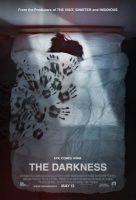 Q: You worked on audio restoration for The Darkness. Can you share what it is you did for the film?
Q: You worked on audio restoration for The Darkness. Can you share what it is you did for the film?
My role in this project was to remove all unnecessary noise from the beginning to the end of every track. It also involved some audio editing work. This composition was recorded with a full orchestra, so recording engineers used a stereo microphone for each horn, wind, percussion, brass, and string section.
When musicians take their musical rest, they may produce some noise which is not able to be avoided while performing. These are not pleasant nor useful for the final product of the film. Some of them were warming up instruments and their finger noises came from their pipes, the sound of score sheets being turned over, chair creaks from readjusting their positions, or removing accumulated spit in their instruments. All of these sounds happen during any recording but need to be removed from the individual tracks as part of the editing process before the mixing engineer starts mixing. Johnny Klimek (composer) valued my past work experience for M-Works Mastering in Boston and I was fortunate to have had the opportunity to work for them. M-Works has been working closely with iZotope. I learned how to use iZotope RX Advanced from Berklee College of Music where I graduated in 2010. The first RX was released in 2008. At that time, many people were using Waves, BIAS, Sonic Solutions and Wave Arts. Later, iZotope RX became industry standard software for audio restoration.
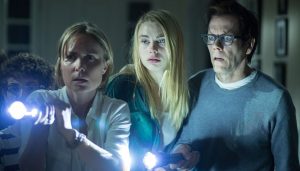 Q: What was the most challenging part of this project?
Q: What was the most challenging part of this project?
Johnny’s composition was very unique so I had to be very careful and pay close attention to the details of his music. When I got the file, I was told that the editing was done but it looked as though they had only completed select takes. I requested Johnny’s original scores and fixed the editing from there. Before I majored in music technology, I studied large ensemble scoring. I wrote scores myself. I am a guitar player, but I had the chance to learn how brass, wind, horns, and strings work from the perspective of other instrument players. Berklee is the right school to study not only audio engineering but also to learn and interact with talented musicians.
Another challenge of this project was that I had to listen to horror music for 40 hours in one week through my headphones. Wearing headphones for such long hours is not good for any audio engineer. I personally don’t like it and don’t recommend it, but we don’t always work in the ideal environment with professional sound-proof insulation. Using headphones was the only the solution I could work with professionally. It’s very important for me to meet the needs of my client.
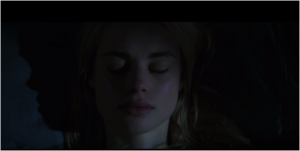 Q: Are there any differences between this project in comparison to other projects you have worked on?
Q: Are there any differences between this project in comparison to other projects you have worked on?
The creative process and my role as a music engineer are different from project to project. The Darkness is a horror movie, so it has to frighten people visually as well as through the music and sound effects. Without the right music and sound, the audience would get bored. Filmmakers or musicians that are new to this often think that anyone can make music and sounds easily and provide what they want as easily as buying a can of soda from a vending machine, but that is not true at all. To make good music and audio is a time-consuming process. It is very different from composing music with Apple’s GarageBand.
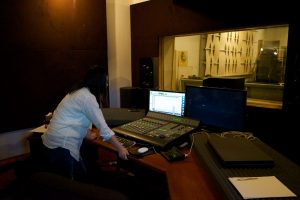 Q: I understand you studied animal biotechnology in college and then changed your course to pursue music. What was it that led you to make that decision?
Q: I understand you studied animal biotechnology in college and then changed your course to pursue music. What was it that led you to make that decision?
In my hometown in Japan, there are not many classical musicians or teachers who received a formal education in music. My goal in my music career was to enjoy music as not only a hobby. I wanted to work professionally, so I wanted to go to Tokyo where I could pursue professional music training. I considered attending a non-degree music school in Tokyo, but my parents disagreed with my idea. The best way to go to Tokyo at that time was to enter any college or university that had degree programs. While studying animal biotechnology at a university in Tokyo, I worked very hard to make money to go to music school. I worked at a convenience store in the morning and I taught math and science to kids in the evening. I also took guitar lessons from a professional musician. I graduated from the university and then applied for Berklee College of Music.
Since Berklee requires all applicants to have performance skills, I also had to improve my ability to play guitar live. A bachelor’s degree in music is not always a must for audio engineers, but I am glad I received a formal college education and have gained not only knowledge in my specialty but also ideas for production. It is very important in my job to know a musician’s needs through good communication.
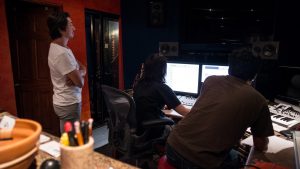 Q: Has there been a moment where you felt fulfilled with your accomplishments as an audio restoration engineer?
Q: Has there been a moment where you felt fulfilled with your accomplishments as an audio restoration engineer?
I always enjoy the moment when I have good collaboration with talented musicians, composers, filmmakers, and video producers, etc. It brings me great pleasure to collaborate with talented professionals. On one of my upcoming projects, I have been working on producing a music video called, Eternally, I am fortunate to work with talented musicians I met at Berklee College of Music. Collaborating with award-winning director, Takahisa Shiraishi is an amazing experience and an honor. Takahisa created the background story, concept of the theme, and a rough outline of the film. Many people asked me “How’s Los Angeles?” Living in L.A. is challenging, but I feel that L.A. is the best place to meet talented collaborators.
The Darkness is on theaters now.
Interview by Izumi Hasegawa – @HNW_Izumi
Edited by: Jody Taylor – @RealJodyTaylor
Follow Us: What’s Up Hollywood at @WhatsUpHWood
